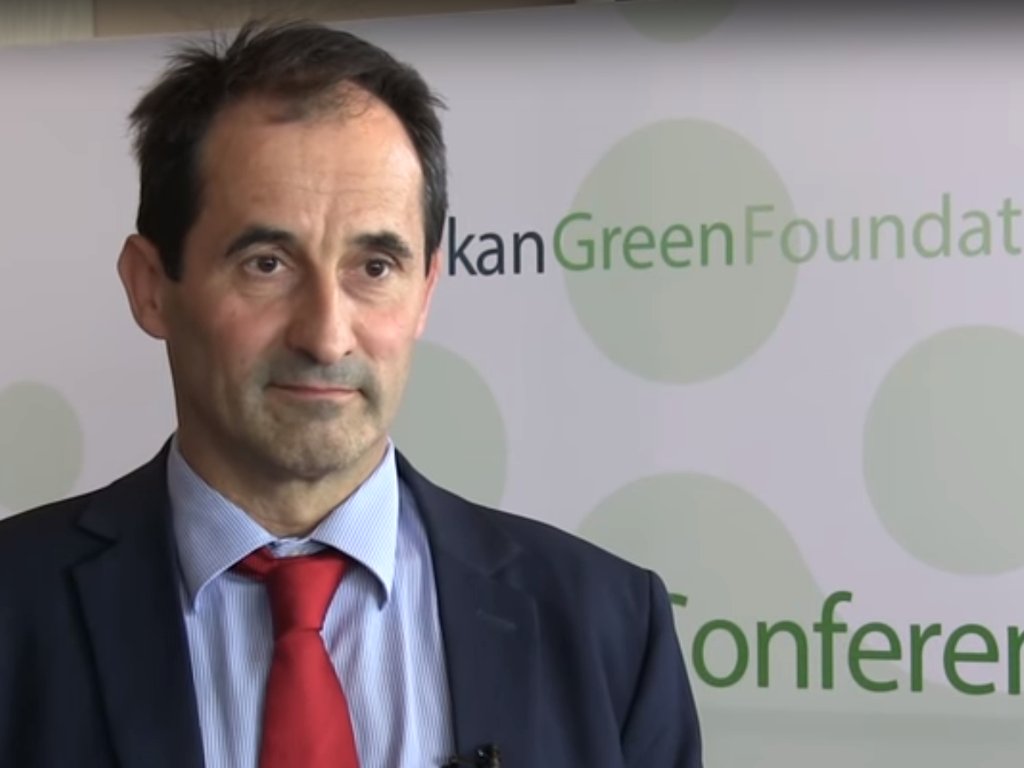KOPAC: EU Considering CO2 Fees for Western Balkans Countries
Janez Kopac (Photo: YouTube/screenshot)

– The gap between them in terms of energy policy is now almost insurmountable – Kopac says in his article “Wakeup call for the Western Balkans” on Balkan Green Energy News.
The Energy Community's analysis shows that coal is substantially subsidized and these subsidies are distorting the market, consumption patterns and long-term viability of the energy systems.
Direct subsidies for electricity generation from coal reached more than half a billion euros between 2015-2017 and, according to Kopac, worse than that, direct subsidies for coal per unit consumed are substantially higher than for electricity generated from renewable sources.
Indirect subsidies play a big role here too.
– Two subsidies examined by the study – operation at a low or negative level of profitability and non-payment of CO2 emissions, assuming 20 euros per ton of CO2 – totaled almost one billion euros annually in the five Contracting Parties assessed by the study – Kopac says
As he says, given the large level of subsidization, Energy Community power producers have a comparative advantage in the European power market, the significance of which will grow as the markets integrate further, and the EU is considering a border adjustment mechanism to remove this inequality.
– If such a measure would be introduced, it could terminate all efforts towards integration of the power markets and bring the whole Energy Community process back to the beginning – Kopac writes.
He also says that security of supply is frequently cited as a reason to maintain the status quo and keep alive out-dated power plants that fail to meet current emission standards.
A study commissioned by the Secretariat found that system adequacy or the way in which the power system can match the electricity demand growth would not suffer if the electricity markets are fully integrated and a transitional carbon price is gradually implemented.
– A transitional carbon price would delay the economic closure of some of the coal-fired power plants until the full CO2 price is introduced upon accession to the European Union – Kopac writes.
Thus far, Montenegro is the sole Contracting Party to have established a CO2 price (24 EUR per ton of CO2).
Tags:
Energy Community
Janez KopaÄŤ
Wakeup Call for the Western Balkans
CO2
carbon
pollution
CO2 fees
Western Balkans
Comments
Your comment
Most Important News
Full information is available only to commercial users-subscribers and it is necessary to log in.
Follow the news, tenders, grants, legal regulations and reports on our portal.
Registracija na eKapiji vam omogućava pristup potpunim informacijama i dnevnom biltenu
Naš dnevni ekonomski bilten će stizati na vašu mejl adresu krajem svakog radnog dana. Bilteni su personalizovani prema interesovanjima svakog korisnika zasebno,
uz konsultacije sa našim ekspertima.


 Izdanje Srbija
Izdanje Srbija Serbische Ausgabe
Serbische Ausgabe Izdanje BiH
Izdanje BiH Izdanje Crna Gora
Izdanje Crna Gora


 News
News







